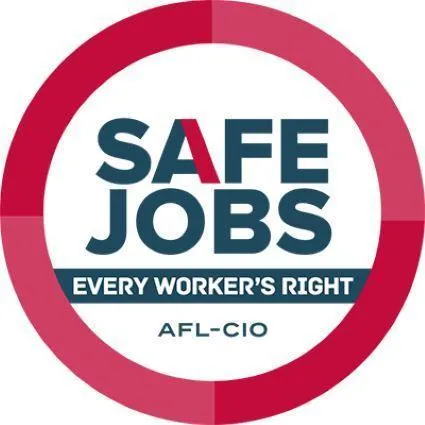Public Sector OSHA Now!

More than 576,000 state and local public employees across the Commonwealth of Pennsylvania have no safety and health protections on the job. The Occupational Safety and Health Act (OSHA) of 1970 has saved countless lives and prevented injuries and illnesses from unhealthy workplaces. It's time that Pennsylvania extend safety and health protections to all workers on the job. PA is one of 24 states without public sector OSHA-style protections for workers.
Without OSHA style protections on the books, there are very few inspection, investigation, and reporting standards for public-sector workplaces in Pennsylvania, but here is some information we do know from the AFL-CIO's Death on the Job Report:
- State and local public-sector employees are 64% more likely to be injured on the job than private-sector workers.
- The workplace violence incidence rate is 745% higher for state employees and 535% higher for local government workers than those in the private sector.
- Workplace injuries often involve expensive litigation and the cost of workers compensation claims.
- Psychiatric aides, psychiatric technicians, firefighters, emergency medical technicians and paramedics, nursing assistants, police and sheriff’s patrol officers, licensed practical and licensed vocational nurses and registered nurses face some of the largest public/private sector discrepancies.
- The incidence rate of psychiatric aides in state government in 2017 (1,160.7 cases per 10,000 full-time workers) was more than seven times greater than the incidence rate for all state government workers (143.8 cases).
Legislation has been reintroduced this session in both chambers of the Pennsylvania General Assembly, House Bill 1976 by Rep. Harkins and Senate Bill 310 by Sen. Tartaglione. These bills would extend OSHA protections to state and local public employees. This legislation has had widespread bipartisan support for several years, yet it has yet to advance to a floor vote.
